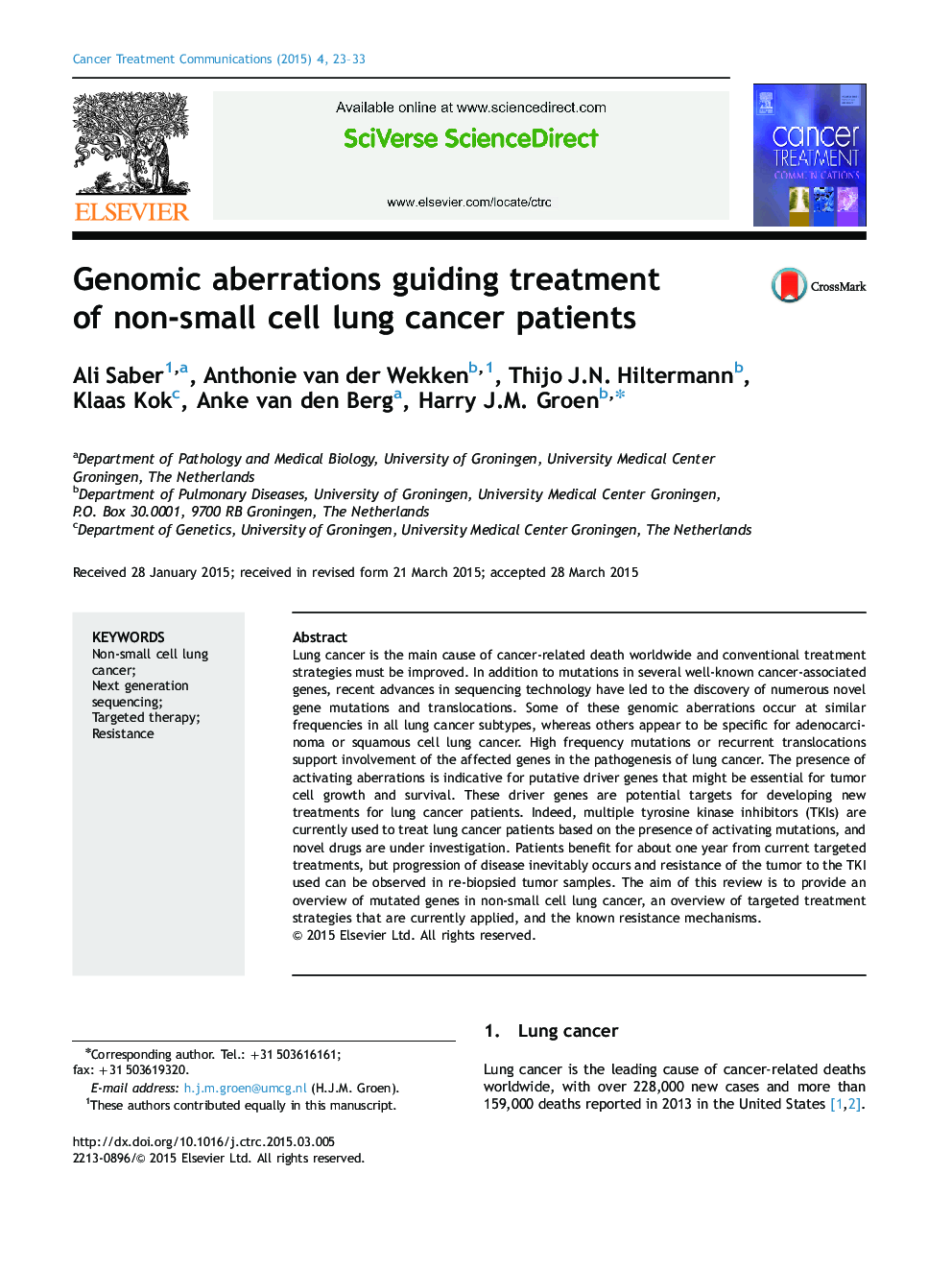| Article ID | Journal | Published Year | Pages | File Type |
|---|---|---|---|---|
| 6190231 | Cancer Treatment Communications | 2015 | 11 Pages |
Lung cancer is the main cause of cancer-related death worldwide and conventional treatment strategies must be improved. In addition to mutations in several well-known cancer-associated genes, recent advances in sequencing technology have led to the discovery of numerous novel gene mutations and translocations. Some of these genomic aberrations occur at similar frequencies in all lung cancer subtypes, whereas others appear to be specific for adenocarcinoma or squamous cell lung cancer. High frequency mutations or recurrent translocations support involvement of the affected genes in the pathogenesis of lung cancer. The presence of activating aberrations is indicative for putative driver genes that might be essential for tumor cell growth and survival. These driver genes are potential targets for developing new treatments for lung cancer patients. Indeed, multiple tyrosine kinase inhibitors (TKIs) are currently used to treat lung cancer patients based on the presence of activating mutations, and novel drugs are under investigation. Patients benefit for about one year from current targeted treatments, but progression of disease inevitably occurs and resistance of the tumor to the TKI used can be observed in re-biopsied tumor samples. The aim of this review is to provide an overview of mutated genes in non-small cell lung cancer, an overview of targeted treatment strategies that are currently applied, and the known resistance mechanisms.
